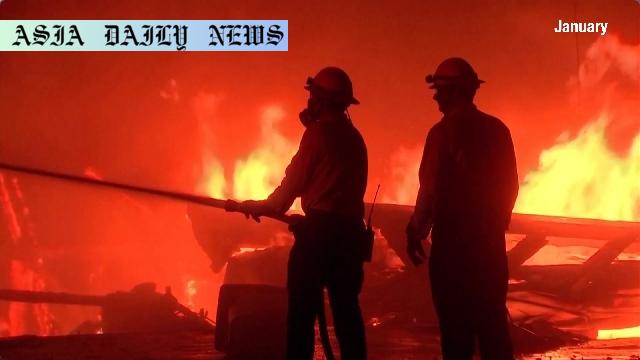Wildfires: Los Angeles Mayor Karen Bass removes Fire Chief Kristin Crowley over mishandling January wildfires.
- Wildfires led to the removal of Los Angeles Fire Chief Kristin Crowley.
- Mayor Karen Bass cited mismanagement and lack of crisis planning.
- Criticism arose over failures in mobilizing firefighters and post-crisis reporting.
- 29 individuals died, with damages spanning over 18,000 structures.

Introduction to the Wildfire Management Crisis
The handling of the January wildfires in Los Angeles has drawn significant public attention, ultimately leading to the removal of Kristin Crowley, the city’s Fire Chief. The decision, announced by Mayor Karen Bass, underscores the severity of missteps in responding to one of the worst wildfire disasters the city has faced in recent history. With mounting criticism over unpreparedness and delayed action, the aftermath of this event reflects broader administrative and strategic challenges in wildfire management.
The Events That Unfolded
The wildfires that erupted on January 7, 2023, wreaked havoc across suburban Los Angeles. Spanning over 200 square kilometers, the fires claimed 29 lives and damaged more than 18,000 structures. High winds and dry conditions exacerbated the situation, creating a catastrophic scenario for thousands of residents. The city’s fire department, however, came under scrutiny for its apparent lack of readiness to confront the unfolding disaster.
Crowley’s Leadership Under Fire
Kristin Crowley, appointed as Los Angeles Fire Chief in 2022, faced significant backlash for her handling of the crisis. According to Mayor Bass, Crowley failed to mobilize 1,000 firefighters who could have been on the ground during the early hours of the wildfire outbreak. Moreover, her reported refusal to compile an after-action report drew ire from the Fire Commission, further fueling the controversy.
Underlying Organizational Challenges
Crowley’s response to the crisis was compounded by claims of staff shortages and funding issues within the Los Angeles Fire Department. In public interviews, she voiced concerns over resource constraints while implicitly criticizing city leadership—a move that may have eroded trust within the administration. This highlights the greater systemic challenges in resource allocation and crisis management that extend beyond individual leadership.
Mayor Bass’ Accountability as a Leader
While firing Chief Crowley may appear as a decisive step, critics have called attention to Mayor Bass’s own responsibility in addressing the crisis. The Los Angeles Times highlighted questions surrounding the city’s overall preparedness for the high winds and subsequent fires. For many, the wildfire crisis has been a litmus test for the mayor’s ability to lead under extreme conditions, raising expectations for improved planning and resilience in the future.
The Broader Implications of the Crisis
The disastrous wildfires in Los Angeles exemplify the increasing challenges facing urban communities as climate change intensifies natural disasters. From extreme weather events to wildfires, cities like Los Angeles must bolster infrastructure, resource allocation, and crisis response mechanisms. The fallout from this event raises crucial questions about leadership accountability, system inefficiencies, and the long-term need to adapt to evolving environmental dangers.
Looking to the Future
In the wake of this crisis, Los Angeles must urgently focus on rebuilding public trust and fortifying emergency response systems. This includes addressing resource shortfalls, enhancing firefighter capacity, and ensuring that leadership prioritizes proactive planning. By adopting a more resilient framework, the city can better prepare for challenges ahead while ensuring that tragedies like the January wildfires are not repeated.



Commentary
Leadership in Crisis Management
The removal of Kristin Crowley as Fire Chief highlights the critical importance of effective leadership in crisis management. Wildfire season in California has been getting progressively worse, and the expectations for preparedness and swift action have never been higher. Leaders must not only have the technical expertise to navigate such crises but also the ability to inspire trust and convey accountability to the public.
A Symptom of Larger Systemic Issues
While Chief Crowley’s removal sends a strong message, it should also prompt a deeper examination of the systemic issues facing the Los Angeles Fire Department. Chronic understaffing and underfunding, for instance, are barriers that no single leader can overcome alone. It is imperative for city officials, including Mayor Bass, to prioritize structural reforms and ensure emergency response teams are sufficiently resourced to handle disasters of this magnitude.
The Role of Accountability
The decision to hold leadership accountable during a public crisis is a double-edged sword. On one hand, it signals seriousness in addressing failures; on the other, it must be paired with concrete actions to address root causes. Moving forward, the focus must shift to long-term planning and preventive measures rather than reactive decision-making. Only then can the city emerge stronger and more resilient in the face of adversity.